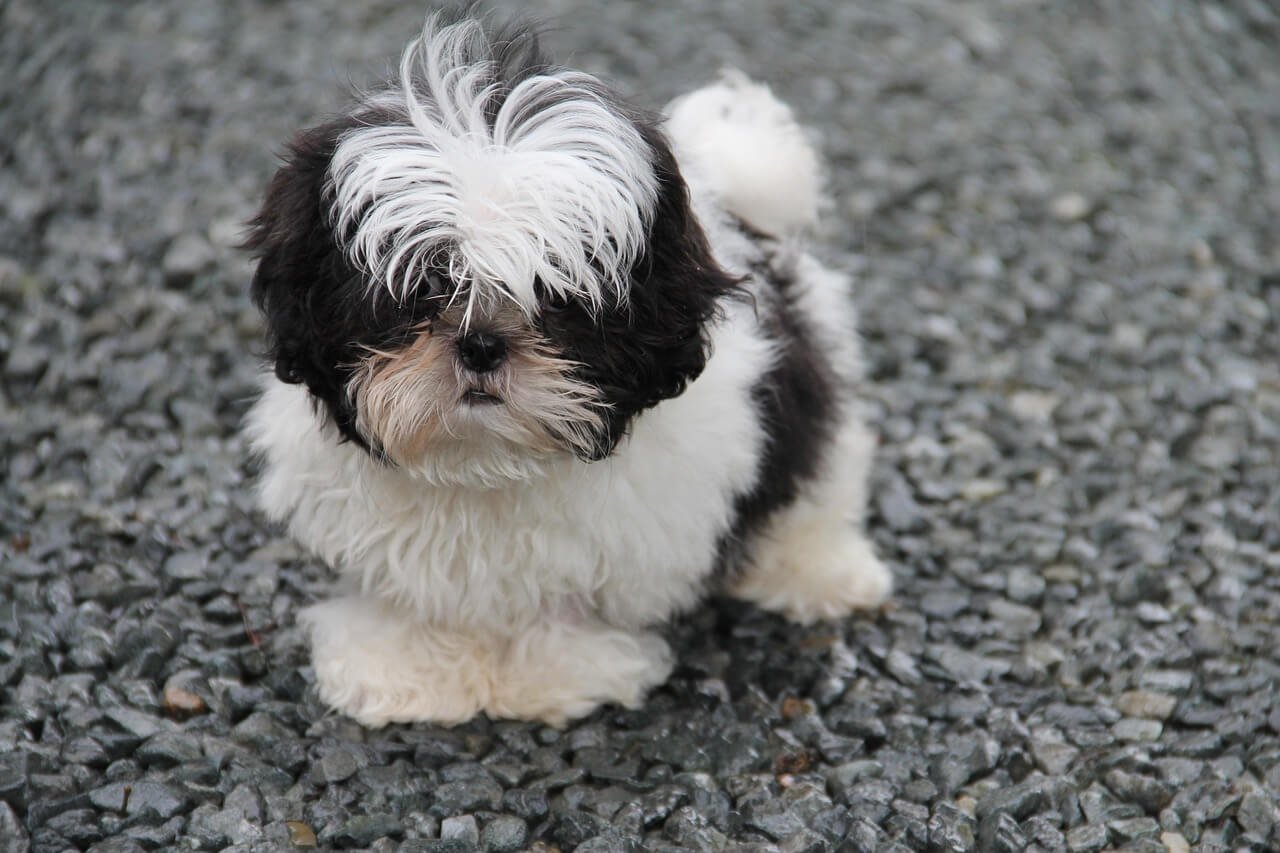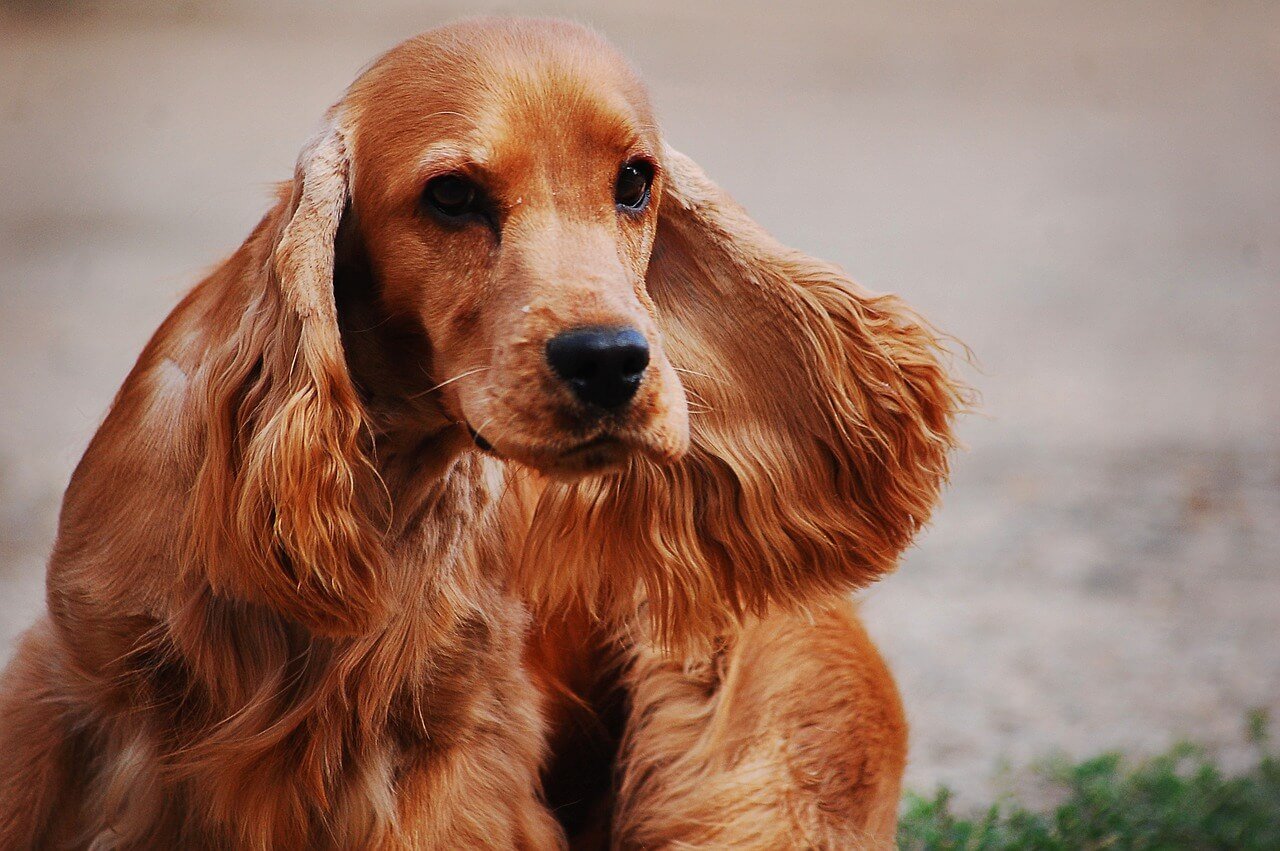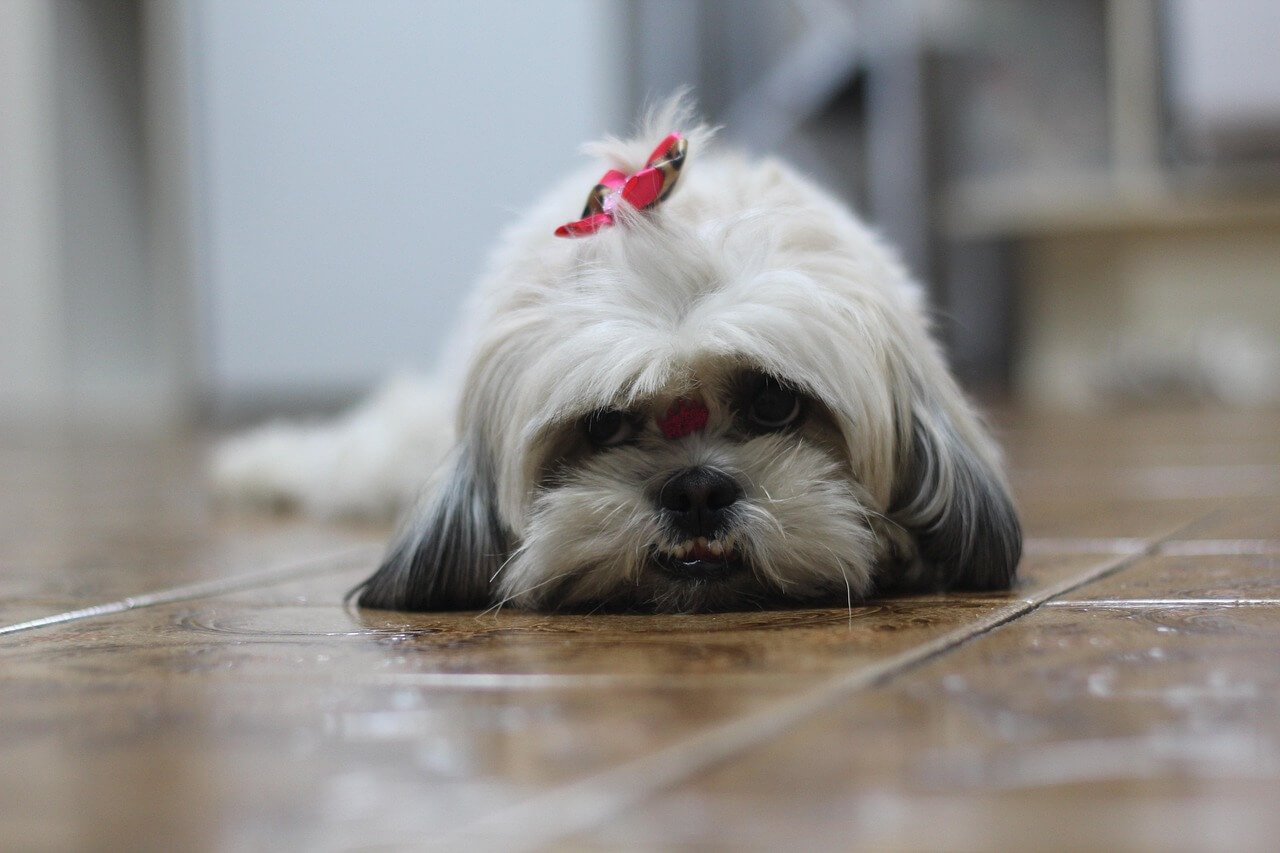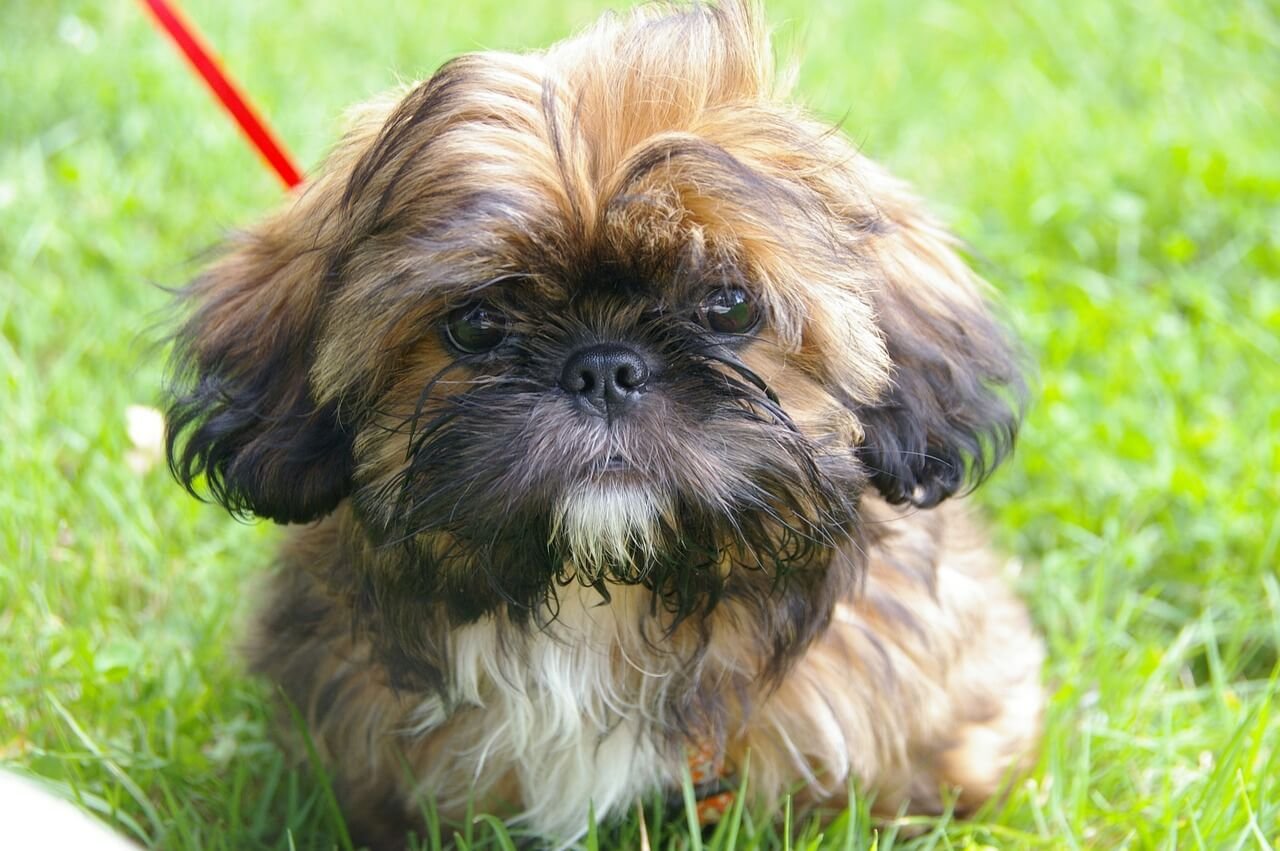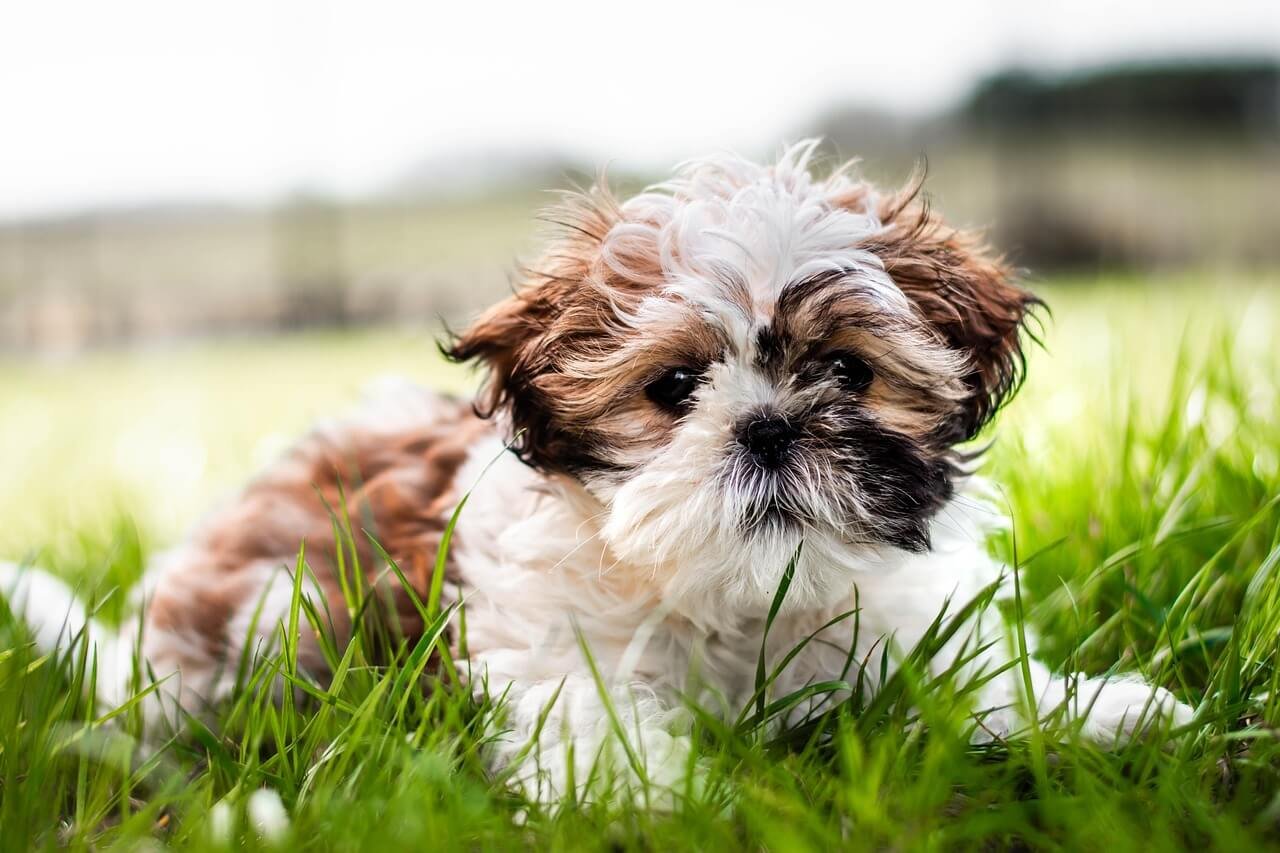The Best Dog Food for Shih Tzu: A Guide to Keeping Your Furry Friend Healthy and Happy
When it comes to caring for a Shih Tzu, one of the most important decisions you’ll make is choosing the right dog food. These adorable little companions have unique dietary needs due to their small size, sensitive stomachs, and luxurious coats. Feeding them the wrong type of food can lead to health issues like obesity, skin problems, or digestive troubles. On the other hand, providing them with high-quality, nutritious meals can ensure they live a long, happy, and energetic life. In this blog post, we’ll explore everything you need to know about finding the best dog food for your Shih Tzu, from essential nutrients to practical feeding tips.
Key Nutritional Needs for Shih Tzus
Feeding your Shih Tzu the right food starts with understanding their specific nutritional requirements. These small dogs may be compact, but their dietary needs are anything but simple. Here’s what you need to keep in mind:
High-Quality Protein:
Shih Tzus thrive on diets rich in animal-based protein, which supports muscle development and overall energy levels.Healthy Fats:
Fats are crucial for maintaining their shiny coat and promoting healthy skin. Look for sources like fish oil or flaxseed.Moderate Carbohydrates:
While carbs provide energy, too many can lead to weight gain. Opt for complex carbs like sweet potatoes or brown rice.Essential Vitamins and Minerals:
These support immune function, bone health, and overall vitality. Ingredients like fruits and vegetables are excellent sources.Hydration is Key:
Wet or moisture-rich foods can help keep your Shih Tzu hydrated, especially since they are prone to urinary tract issues.
By focusing on these key elements, you can ensure your Shih Tzu receives a balanced diet that meets all their nutritional needs.
Top Ingredients to Avoid in Shih Tzu Food
Not all dog foods are created equal, and some ingredients can do more harm than good for your Shih Tzu. Being aware of these harmful components will help you make better choices when selecting food for your furry friend.
Artificial Preservatives:
Chemicals like BHA and BHT can be harmful over time and may cause allergic reactions.Corn and Soy Fillers:
These are common allergens for Shih Tzus and offer little nutritional value.Excessive Grains:
While some grains are fine, too many can upset your Shih Tzu’s delicate stomach.By-Products:
Meat by-products often lack the quality protein your dog needs and can be difficult to digest.Added Sugars:
Sugars can lead to obesity and dental issues, so it’s best to avoid them altogether.
Steering clear of these ingredients will go a long way in ensuring your Shih Tzu stays healthy and free from unnecessary health complications.
Check this guide 👉5 Best High-Fat Dog Foods for Ultimate Energy & Health!
Check this guide 👉5 Best Grain-Free Dog Foods for Ultimate Health!
Check this guide 👉Top 4 Premium Beef Dog Food Options for Ultimate Nutrition!
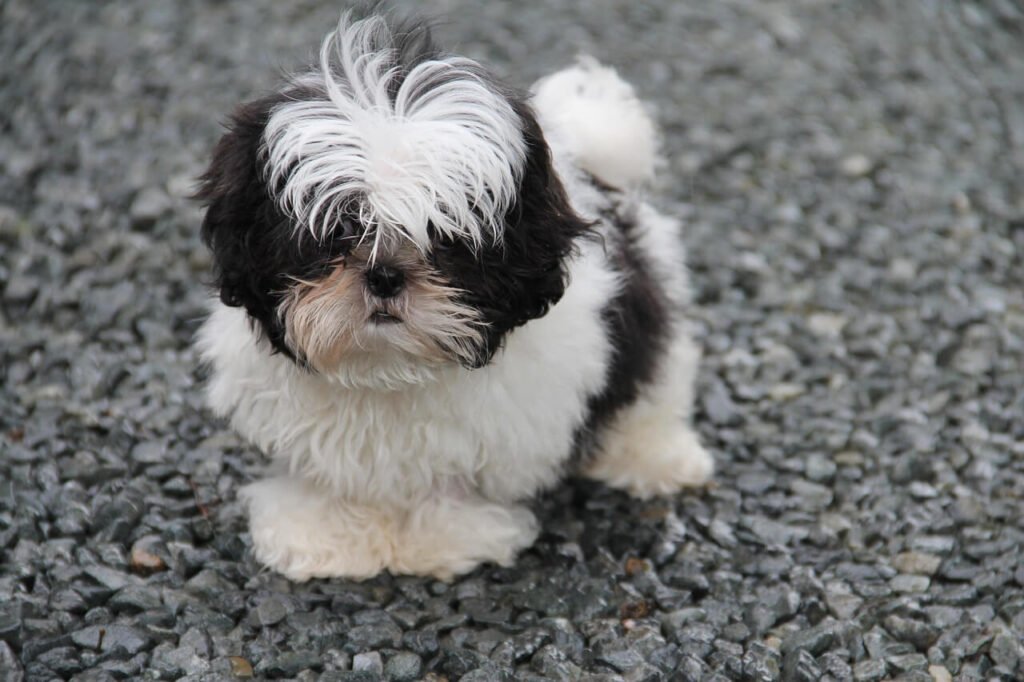
Factors to Consider | Why It Matters |
|---|---|
High-Quality Protein | Supports muscle growth and energy levels |
Grain-Free Options | Reduces risk of allergies and digestive issues |
Omega Fatty Acids | Promotes a shiny coat and healthy skin |
Small Kibble Size | Easier for Shih Tzus to chew and digest |
Balanced Nutrition | Ensures overall health and longevity |
Best Feeding Practices for Shih Tzus
Feeding your Shih Tzu isn’t just about choosing the right food—it’s also about how you feed them. Proper feeding practices can make a big difference in their health and well-being.
Portion Control:
Overfeeding is a common issue with small breeds. Stick to the recommended portion sizes based on your dog’s weight.Consistent Meal Times:
Establishing a routine helps regulate digestion and prevents overeating.Monitor Weight Changes:
Regularly check your Shih Tzu’s weight to ensure they’re not gaining or losing too much.Avoid Table Scraps:
Human food can upset their stomach and lead to unhealthy eating habits.Fresh Water Always Available:
Ensure your Shih Tzu has access to clean water at all times to stay hydrated.
By adopting these feeding practices, you can help your Shih Tzu maintain a healthy lifestyle and prevent potential health issues.
Signs Your Shih Tzu May Need a Diet Change
Sometimes, even the best-intentioned pet parents may miss signs that their Shih Tzu isn’t thriving on their current diet. Here are some indicators that it might be time to switch things up:
Dull Coat or Skin Issues:
A lackluster coat or persistent itching could signal nutritional deficiencies.Digestive Problems:
Frequent diarrhea or vomiting may indicate an intolerance to certain ingredients.Weight Fluctuations:
Sudden weight gain or loss can point to improper nutrition or portion sizes.Low Energy Levels:
If your Shih Tzu seems unusually lethargic, their diet may lack essential nutrients.Food Allergies:
Symptoms like ear infections or red paws may suggest an allergic reaction to certain foods.
Addressing these signs promptly can help you find a better-suited diet for your Shih Tzu, ensuring they remain happy and healthy.
Additional Tips for Feeding Shih Tzus
Feeding your Shih Tzu isn’t just about the food itself—it’s also about how you approach mealtime. Here are some extra tips to ensure your furry friend gets the most out of their meals.
Use Puzzle Feeders:
Puzzle feeders can make mealtime more engaging and mentally stimulating for your Shih Tzu.Rotate Protein Sources:
Switching between different protein sources like chicken, lamb, or fish can provide variety and prevent boredom.Avoid Free-Feeding:
Leaving food out all day can lead to overeating. Stick to scheduled meal times to regulate intake.Transition Gradually:
When switching foods, do so gradually over 7–10 days to avoid digestive upset.Supplement Wisely:
If recommended by your vet, consider adding supplements like probiotics or joint support for added health benefits.
By incorporating these practices, you can enhance your Shih Tzu’s feeding experience while supporting their overall health and happiness.
Fun Ways to Make Mealtime Exciting
Mealtime doesn’t have to be boring! Adding a little creativity can turn feeding into an enjoyable activity for your Shih Tzu. Here are some ideas to spice things up:
Hand-Feeding Treats:
Occasionally hand-feeding small treats during training sessions strengthens the bond between you and your dog.DIY Dog Food Recipes:
Preparing homemade meals with vet-approved recipes can give you full control over ingredients and portion sizes.Interactive Toys:
Stuffing toys like Kongs with food or treats encourages your Shih Tzu to work for their meal, keeping them entertained.Mix Wet and Dry Food:
Combining wet and dry food adds texture and flavor variety, making meals more appealing.Create a Feeding Schedule:
Incorporating themed “treat days” or special snacks on occasion keeps mealtime exciting without overdoing it.
With a little effort, you can transform mealtime into a fun and enriching experience that your Shih Tzu will look forward to every day.
Signs Your Shih Tzu is Thriving on Their Diet
How do you know if your Shih Tzu is truly benefiting from their current diet? Look for these positive signs that indicate they’re healthy and well-nourished.
Shiny, Soft Coat:
A glossy coat free of flakes or excessive shedding is a clear sign of proper nutrition.Bright Eyes and Energy Levels:
Healthy dogs tend to have bright, alert eyes and plenty of energy for playtime.Regular Digestion:
Consistent bowel movements without diarrhea or constipation suggest good gut health.Healthy Weight Maintenance:
Your Shih Tzu should have a proportional body shape without visible ribs or excess fat.Strong Immune System:
Fewer illnesses or infections can indicate that their diet supports a robust immune system.
When you notice these signs, you’ll know you’ve found the perfect balance in your Shih Tzu’s diet, ensuring they remain happy, energetic, and thriving.
FAQ
How much should I feed my Shih Tzu daily?
Most adult Shih Tzus require around ¾ to 1 cup of food per day, divided into two meals. However, this can vary based on their age, activity level, and metabolism.
Can Shih Tzus eat wet food?
Yes, wet food is an excellent option for Shih Tzus, as it provides additional moisture and is easier to chew.
Are grain-free diets better for Shih Tzus?
Not necessarily. While some Shih Tzus benefit from grain-free diets, others do fine with grains. It depends on their individual sensitivities.
What human foods are safe for Shih Tzus?
Small amounts of cooked chicken, carrots, and pumpkin are generally safe, but always consult your vet before introducing new foods.
How can I tell if my Shih Tzu is allergic to their food?
Watch for symptoms like excessive scratching, ear infections, or digestive issues. A vet can help diagnose and address food allergies.
Final Thoughts: Nourishing Your Shih Tzu for a Lifetime of Happiness
Choosing the best dog food for your Shih Tzu is one of the most impactful ways to show your love and care. By focusing on high-quality ingredients, avoiding harmful additives, and tailoring their diet to their unique needs, you can set the foundation for a long and vibrant life. Remember, every Shih Tzu is different, so take the time to observe their response to various foods and adjust accordingly. With the right nutrition and a little extra attention, your furry companion will thrive, bringing endless joy to your home.
How Much Is a Cocker Spaniel? Best 7 Expert Tips! Discover the true cost of owning a Cocker Spaniel, from initial expenses to expert advice on budgeting and care. Perfect for future owners!
How Much Should a Shih Tzu Weigh? Best 7 Expert Tips! Discover the ideal weight range, factors influencing it, and expert advice to keep your Shih Tzu healthy and happy.
How Much Does a Shih Tzu Cost? Best 7 Expert Tips! Discover the true cost of owning a Shih Tzu, from initial expenses to hidden fees. Perfect for future owners!
Are Shih Tzus Hypoallergenic? Best 7 Health Tips! Discover if Shih Tzus are hypoallergenic and learn expert advice to manage allergies with this beloved breed. Perfect for allergy sufferers!

